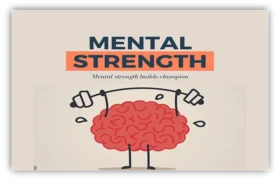Understanding Different Types of Strength: A Comprehensive Guide
Strength is a multifaceted concept that extends beyond mere physical prowess. It encompasses various dimensions, each contributing uniquely to our overall well-being and capability to navigate life’s challenges. In this blog, we will explore different types of strength, highlighting their significance and ways to develop them.
1. Physical Strength

Definition
Physical strength refers to the ability of muscles to exert force. It is the most commonly recognized type of strength and is crucial for everyday activities and overall health.
Importance
- Health and Fitness: Enhances overall physical health, reduces the risk of injury, and improves metabolism.
- Daily Activities: Facilitates easier performance of daily tasks such as lifting, carrying, and moving objects.
- Sports and Recreation: Essential for athletic performance and participation in recreational activities.
Ways to Develop
- Resistance Training: Weightlifting, bodyweight exercises, and resistance band workouts.
- Cardiovascular Exercise: Activities like running, swimming, and cycling to complement muscle building.
- Balanced Nutrition: Adequate protein intake and proper hydration.
2. Mental Strength

Definition
Mental strength involves the capacity to handle stress, overcome obstacles, and maintain focus. It is crucial for emotional resilience and psychological well-being.
Importance
- Stress Management: Helps in coping with life’s pressures and reducing anxiety.
- Goal Achievement: Enhances perseverance and the ability to stay focused on long-term objectives.
- Emotional Regulation: Improves the ability to manage emotions and maintain a positive outlook.
Ways to Develop
- Mindfulness Practices: Meditation, yoga, and deep breathing exercises.
- Cognitive Behavioral Techniques: Identifying and challenging negative thought patterns.
- Healthy Habits: Regular exercise, adequate sleep, and proper nutrition.
3. Emotional Strength

Definition
Emotional strength is the ability to manage and express emotions effectively. It involves resilience, empathy, and emotional intelligence.
Importance
- Relationship Building: Facilitates healthy interpersonal relationships and effective communication.
- Resilience: Enables quicker recovery from emotional setbacks.
- Self-awareness: Enhances understanding of personal emotions and triggers
Ways to Develop
- Self-reflection: Journaling and therapy to explore and understand emotions.
- Empathy Practice: Actively listening and empathizing with others’ experiences.
- Emotional Regulation Skills: Techniques such as progressive muscle relaxation and visualization.
4. Social Strength

Definition
Social strength refers to the ability to build, maintain, and navigate relationships and social networks
Importance
- Support Systems: Provides emotional and practical support during challenging times.
- Career Advancement: Networking and relationship-building skills are critical for professional growth.
- Community Engagement: Enhances a sense of belonging and community involvement.
Ways to Develop
- Communication Skills: Active listening, assertiveness training, and conflict resolution.
- Community Involvement: Participating in social groups, volunteering, and engaging in community events.
- Building Trust: Being reliable, honest, and supportive in relationships.
5. Spiritual Strength

Definition
Spiritual strength involves a sense of purpose, connection to a higher power or principles, and inner peace.
Importance
- Inner Peace: Provides a sense of calm and stability.
- Purpose and Meaning: Enhances life satisfaction and direction.
- Coping Mechanism: Offers solace and strength during difficult times.
Ways to Develop
- Meditation and Prayer: Regular practices that foster spiritual connection.
- Reflection and Contemplation: Spending time in nature, reading spiritual texts, and self-reflection.
- Community Worship: Participating in religious or spiritual gatherings.
6. Intellectual Strength

Definition
Intellectual strength is the capacity for critical thinking, problem-solving, and continuous learning.
Importance
- Adaptability: Enhances the ability to adapt to new situations and challenges.
- Problem-Solving: Improves decision-making and analytical skills.
- Personal Growth: Encourages lifelong learning and intellectual curiosity.
Ways to Develop
- Continuous Learning: Engaging in formal education, online courses, and reading.
- Critical Thinking Exercises: Puzzles, debates, and analytical discussions.
- Creative Hobbies: Activities like writing, painting, and playing musical instruments
Conclusion
Strength is a multifaceted attribute that encompasses much more than physical ability. By recognizing and nurturing different types of strength—physical, mental, emotional, social, spiritual, and intellectual—we can lead more balanced, resilient, and fulfilling lives. Embrace the journey of developing these strengths and discover the profound impact they can have on your overall well-being.

